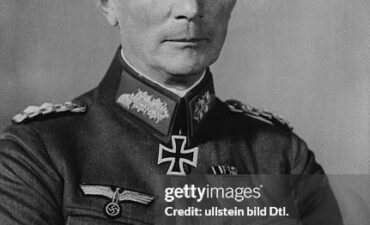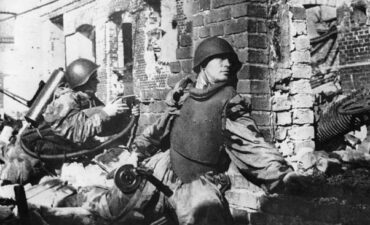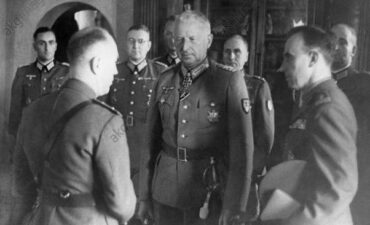Did any of Hitler’s generals disrespect him to his face?
Did any of Hitler’s generals disrespect him to his face? While Adolf Hitler held an iron grip over his generals and the German military hierarchy during his rule, there were instances of tension and disagreement. However, outright disrespect to his face was extremely rare due to the fear of severe consequences. Here are a few notable incidents:
Field Marshal Erwin Rommel (The Desert Fox):
Rommel occasionally expressed disagreement with Hitler’s strategic decisions, particularly during the Normandy campaign. He was openly critical of Hitler’s insistence on defending every inch of ground, which he believed would lead to Germany’s defeat. While Rommel did not directly disrespect Hitler to his face, his defiance became apparent, and his involvement in the July 20, 1944, plot to assassinate Hitler (albeit tangentially) sealed his fate.
Field Marshal Gerd von Rundstedt:
Known for his blunt personality, von Rundstedt was reportedly dismissive of some of Hitler’s decisions. On one occasion, after being asked for his opinion on the war’s progress in late 1944, von Rundstedt reportedly responded, “Make peace, you fools!” Though not said directly to Hitler, it exemplified his frustration with the Führer’s unrealistic strategies.
Colonel General Heinz Guderian:
Guderian, a pioneer of armored warfare, often clashed with Hitler over the misuse of panzer divisions. In several heated discussions, Guderian bluntly criticized Hitler’s orders and strategies. While his tone was firm rather than disrespectful, these exchanges highlighted his willingness to challenge Hitler more directly than most.
Field Marshal Walter Model:
Known as the “Führer’s fireman,” Model occasionally stood up to Hitler during planning sessions. He was respected for his military expertise, which gave him some leeway to push back against unrealistic orders, though he stopped short of outright disrespect.
Generaloberst Ludwig Beck:
Beck resigned as Chief of the General Staff in 1938 due to his opposition to Hitler’s aggressive war plans. Although his resignation was an implicit rebuke, it was not a direct confrontation.
Most of Hitler’s generals feared retribution, such as dismissal, imprisonment, or execution, and thus were cautious in their interactions with him. The July 20 plot to assassinate Hitler, involving high-ranking officers like Claus von Stauffenberg, represented the culmination of their discontent, but such defiance typically occurred behind closed doors rather than face-to-face.








